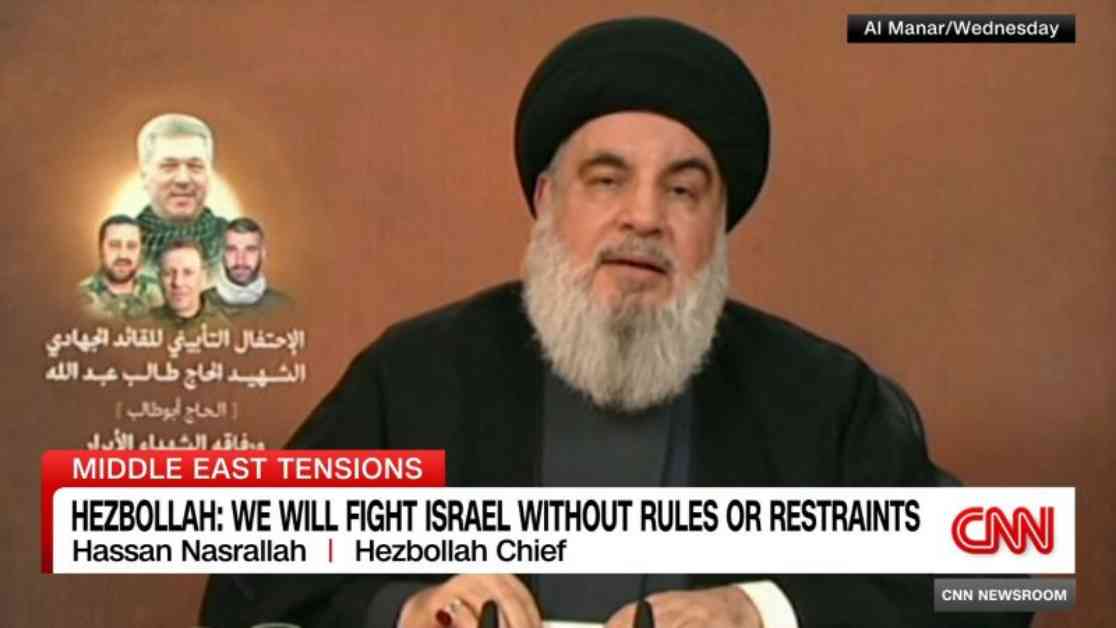In a recent speech, Hezbollah leader Hassan Nasrallah issued a threat towards Cyprus, a small European nation, warning that the Mediterranean island could be targeted if it assists Israel in a potential conflict between Hezbollah and Israel. This warning came amid rising tensions in the region, with Israel also expressing concerns about the possibility of an all-out war in Lebanon.
Cyprus, in response to these threats, denied any involvement in the conflict and emphasized its commitment to stability in the region. The European Union, of which Cyprus is a member state, stood in solidarity with Cyprus, stating that any threat against one member state is a threat against the EU as a whole.
The geopolitical significance of Cyprus lies in its location at the crossroads between the Middle East and southern Europe. The island is divided into two parts, with the Greek-speaking southern region recognized internationally. Despite its EU membership, Cyprus is not part of the NATO defense alliance, which plays a role in its diplomatic relations with other countries.
Cyprus has a complex history with Israel, marked by periods of strained relations and cooperation in recent decades. The discovery of natural gas in the Eastern Mediterranean has led to increased economic partnerships between Cyprus and Israel, with the two countries engaging in joint military exercises focused on potential threats in the region.
While the likelihood of a full-scale conflict between Israel and Hezbollah remains low, the recent tensions involving Cyprus add a new dimension to the ongoing conflicts in the Middle East. The Biden administration’s stance on potential involvement in the region and the implications of such actions are also key factors to consider.
In light of these developments, Cyprus has emphasized its role as a mediator and humanitarian actor in the region. The country has facilitated aid shipments to Gaza and condemned actions that hinder the delivery of humanitarian assistance. As a small nation caught in the midst of larger conflicts, Cyprus continues to navigate its position on the international stage.
The recent threats from Hezbollah towards Cyprus underscore the fragile balance of power in the region and the potential implications of a broader conflict. As the situation unfolds, it is essential for all parties involved to prioritize dialogue and diplomacy to prevent further escalation and ensure stability in the Eastern Mediterranean.

